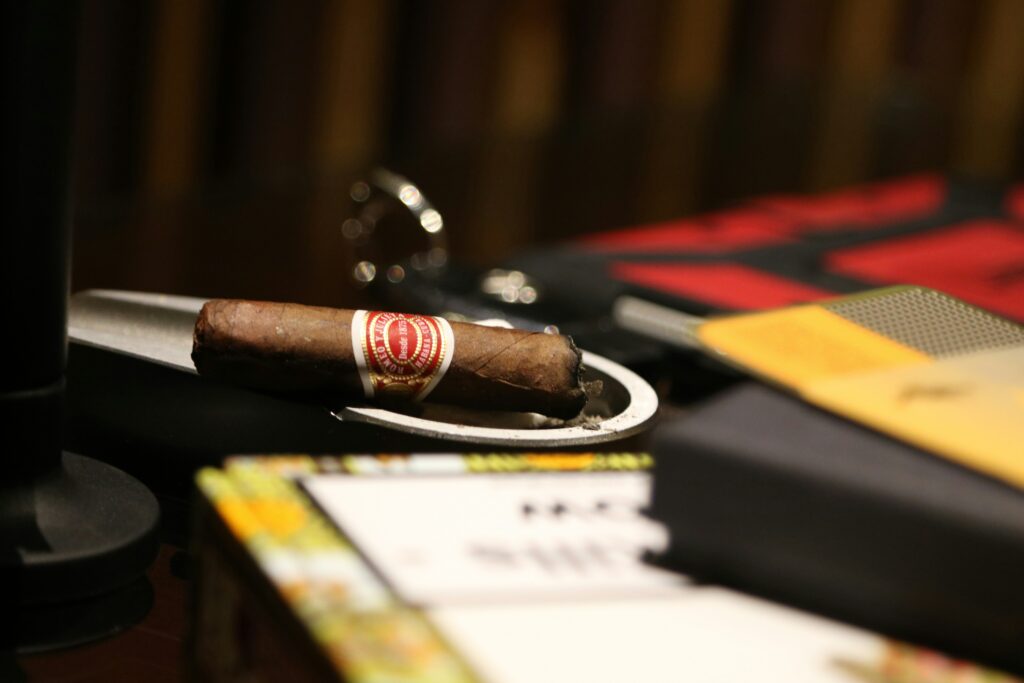How Long Is a Cigar Good For? Understanding the Lifespan and Proper Storage


Cigars are a prized possession for aficionados, and their enjoyment often goes beyond just the act of smoking. Like any fine product, cigars have a shelf life that is influenced by various factors, including storage conditions, humidity, and the type of tobacco used. In this article, we will explore how long a cigar remains good and the steps you can take to ensure its longevity, preserving its taste and aroma for the perfect smoking experience.
The Shelf Life of Cigars
The lifespan of a cigar is not set in stone; it varies depending on how it is stored and maintained. Under optimal conditions, a cigar can last for several years without losing its quality. However, if cigars are exposed to poor storage environments, they can deteriorate quickly. Typically, cigars will last for several months if stored in the right conditions. However, for those who wish to store their cigars for an extended period, special care must be taken to maintain their freshness and quality.
One of the most critical aspects affecting a cigar’s lifespan is the humidity level. Cigars should be stored in a humidor, which helps regulate both temperature and humidity. The ideal relative humidity (RH) level for cigars is between 65% and 72%. When cigars are kept at this level, they remain moist and flavorful. However, if the humidity drops below this range, cigars can dry out, leading to a harsh smoking experience. On the other hand, if the humidity level is too high, cigars may become too moist, promoting the growth of mold and ruining their integrity.
Storing Cigars for Long-Term Preservation
For those who want to store cigars for an extended period, the key is creating a stable, controlled environment. This can be achieved by investing in a quality humidor. A humidor helps maintain cigars at the ideal temperature and humidity, protecting them from external factors that could affect their quality. However, even the best humidors require proper maintenance.
The temperature within a humidor is also a critical consideration. Ideally, cigars should be stored at a temperature between 65°F and 70°F (18°C to 21°C). If the temperature is too high, it can accelerate the aging process, causing the cigar’s tobacco to become overly dry. Conversely, if the temperature is too low, it can cause the cigar to become too moist, making it susceptible to mold growth. Keeping a humidor in a cool, dry place, away from direct sunlight, is essential for maintaining an optimal environment.
Additionally, regular monitoring of the humidity level is necessary to ensure the cigars remain in perfect condition. Many humidors come with built-in hygrometers to help measure the humidity. If your humidor doesn’t have one, it’s a good idea to invest in a separate hygrometer so that you can keep track of the conditions. If the humidity is low, you can add distilled water or a humidification solution to maintain the proper balance.
The Impact of Aging on Cigars
Many cigar lovers choose to age their cigars to enhance their flavor. Aging cigars allows the tobacco to mellow and develop more nuanced flavors, resulting in a smoother smoking experience. However, not all cigars are meant to be aged, and the aging process should be carefully monitored. Premium cigars are typically best for aging, as they are made with high-quality tobacco that can benefit from the aging process.
It’s important to note that aging cigars doesn’t necessarily make them better for everyone. While aging can improve the flavor of some cigars, others may lose their appeal over time. For example, cigars made from milder tobaccos may lose their character if aged for too long. On the other hand, cigars made from bolder tobaccos may become smoother and more balanced with age.
If you choose to age your cigars, it is essential to give them the same attention and care as when you first purchased them. Store them in a dedicated humidor with consistent temperature and humidity levels. The aging process can take anywhere from a few months to several years, depending on the type of cigar and the desired outcome.
Signs of a Cigar Gone Bad
Despite best efforts, there may be times when cigars don’t last as long as expected. Cigars that are not correctly stored or have been exposed to harsh conditions can develop issues that make them unsuitable for smoking. The most common sign of a cigar that has gone bad is a dry and brittle wrapper. When a cigar dries out, it loses its natural oils and flavor, resulting in a less pleasant smoking experience.
In addition to dryness, mold growth is another issue to be aware of. If you notice white or green spots on your cigar, it may be a sign that the cigar has been stored at a humidity level that is too high, promoting mold growth. Mold can completely ruin a cigar, and it is not recommended to try to salvage it.
Another sign that a cigar has gone bad is a sour or unpleasant odor. Fresh cigars have a rich, earthy aroma, while cigars that have been improperly stored may develop a stale or musty smell. If the cigar smells unpleasant, it is likely no longer suitable for smoking.
